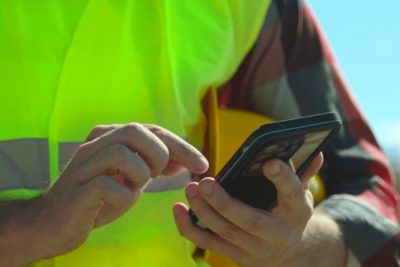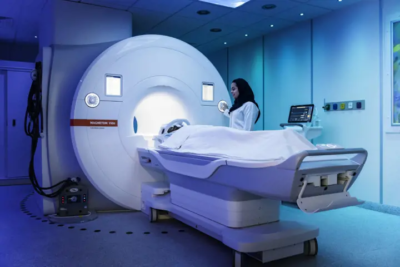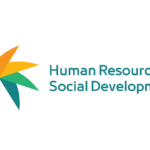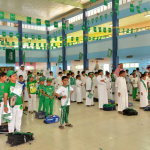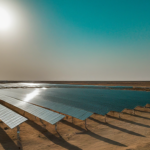
“Another major change in the M&A landscape will be the sectors of focus for investors in Saudi Arabia and the region as sectors such as aviation will suffer from the pandemic and will require years to recover. Other sectors, such as healthcare and food & beverage, will emerge as defensive.”
–Consultancy Middle East sees M&A activity in the GCC increasing amid the Covid-19 pandemic. [Consultancy Middle East]

“Saudi Arabia, alongside Germany, is the world’s second-biggest destination for migrants, while the United Arab Emirates last year hosted more migrants than France or Canada, according to United Nations estimates. In Kuwait, at least 650,000 expatriates, mostly from the Philippines, India, Sri Lanka and Bangladesh, are employed as domestic workers alone.”
-Fiona McDonald in Bloomberg reports on Kuwait Prime Minister, Sabah Al-Khalid Al-Sabah’s, statement that he would like to halve his country’s expatriate population. Currently foreigners account for nearly 3.4 million of Kuwait’s 4.8 million people. [Bloomberg]

“Prior to the outbreak, some young would-be entrepreneurs were worried about “losing their moment” if the socioeconomic reforms introduced by Crown Prince Mohammed bin Salman between 2016 and 2019 disappeared. Now, with austerity measures in place and a contracting economy, there is concern that establishing start-ups may be perceived as too great a risk.”
-Mark Thompson in Gulf Monitor analyzes a survey of 325 young Saudis that found that 60% “believe the virus will have a long-lasting impact on the economy and societal transformation.” [Gulf Monitor]

“But what made it different was the fact that I was doing it in Arabic. There were plenty of family vloggers in the US and none really in the Arab world. Even from the early videos I began to see people became more connected when I post stuff about my family and children. I can honestly say that we were kind of pioneers in that sense.”
-Mohamed Moshaya in The National discusses his mmoshaya YouTube page which highlights his family life with for young children and is currently the second leading YouTube channel in the Arab world with 16.9 million subscribers. Moshaya recently hosted the world’s largest virtual iftar. [The National]

“Saudi Arabia’s injection shows that SAMA is committed to support the sector beyond SMEs in this unprecedented crisis. This is likely to boost liquidity at no cost and mitigate part of the pressure on banks from relief repayments or debt restructuring to sectors beyond SMEs.”
-Edmond Christou, a banking analyst at Bloomberg Intelligence, on Saudi Arabia’s decision to invest $13.3 billion in a stimulus package to protect banks as they confront dual challenges of the coronavirus shock and lower oil prices. [bloomberg.com]

“Putting on a big desert art festival—it’s not cheap, but it’s not a billion dollars, and you get a lot of international exposure and goodwill…I am cautiously optimistic about the art scene. The programs from Vision 2030 that are most likely going to be cut are the construction projects like Neom and tourist infrastructure on the Red Sea.”
-Kate Seelye, vice president for arts and culture at the Middle East Institute in Washington, DC. [theartnewspaper.com]

“The unparalleled decline is staggering in both its scale and swiftness, with serious potential implications for energy security and clean energy transitions.”
–The International Energy Agency said Wednesday that global investment could plunge by a record $400 billion this year, with spending expected to plummet across every major sector, from oil and gas to renewable energy. [CNN]

“South Asia is the second-largest remittance receiving region in the world, while India is the single-largest country recipient, clocking in at $83 billion in the year 2019. Two countries alone – the United Arab Emirates and Saudi Arabia – account for nearly 40% of all remittances to South Asia.”
-Afshin Molavi, writing for the Arab Gulf States Institute in Washington (AGSIW), examines the impact of contracting Gulf economies on the flow of remittances to South Asia. [AGSIW]

“You don’t want to waste a crisis . . . So for us, definitely we are looking into any opportunities.”
-Yasir Al-Rumayyan, governor of Saudi Arabia’s sovereign wealth fund, to more than 2,000 bankers and executives tuned in to a virtual conference in April. “They were not idle words,” the Financial Times writes. The PIF says it is “identifying opportunities to invest in solid companies with strong, long-term outlooks who we expect will be sector leaders when global economic activity begins to approach pre-pandemic levels.” [Financial Times]

